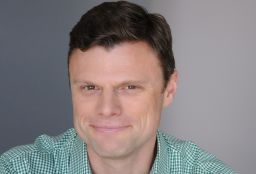Editor’s Note: Christian Whiton is a former deputy special envoy for human rights in North Korea for the George W. Bush administration. He is president of the Hamilton Foundation; a principal with DC Advisory, which is a public policy consultancy; and the author of “Smart Power: Between Diplomacy and War.” The views expressed are his own.
Story highlights
Vladimir Putin reportedly praised presidential candidate Donald Trump as "absolute leader" of race
Christian Whiton: Putin will happily pocket Trump's naivete
Vladimir Putin has his man in the U.S. presidential race: Donald Trump. On Thursday, the Russian president reportedly declared Trump to be the “absolute leader” of the race.
Putin – a natural if brawny showman who has posed fishing shirtless, shooting shirtless and horseback riding shirtless – also said of Trump: “He’s a very lively man, talented without doubt.”

Thus did the man who embodies the parody of homoeroticism from the 1970s endorse one who embodies the parody of a blow-hard executive from the 1980s. But while Moscow has long been interested in American politics, what inspired the man who has essentially run Russia since 2000 to take the unusual step of commenting on the election process of an adversary?
Two things: empathy and desire.
Whether he knows it or not, Putin practices a key tenet of statecraft identified by Mel Brooks. His darkly comical musical “The Producers” features the number “Heil Myself!” (also known as “Springtime for Hitler”), in which a campy rendition of the German dictator sings, “It ain’t no mystery, if it’s politics or history, the thing you gotta know is, everything is showbiz.”
The line could be the leitmotif of the reality show that is Trump’s campaign.
The Donald’s approach to politics likely reminds Putin of himself and he empathizes. Not only do the two men share a love for spectacle and an appreciation of its ability to move low-information voters, but Putin also sees Trump’s self-reference as something Moscow can exploit.
Putin famously began his career as an intelligence officer. One thing the young Putin would have been taught by his employers at the KGB’s First Chief Directorate, the agency’s center for foreign intelligence collection, is to look for character flaws that can be used to enlist a target as an agent or, short of that, an unwitting helper. It’s a fancied-up version of a con man looking for his mark.
Recent American presidents have been easy prey for Putin. George W. Bush, who thought he got a “sense of Putin’s soul,” mistook the Russian strongman for a friend. Barack Obama believed that a change in diplomatic tone would alter Putin’s calculation of his nation’s interests. Putin of course encouraged both vanities. The invaded people of Georgia and Ukraine can attest to who sized up whom better.
The cherry on the cake would be a President Trump. Putin has no doubt observed that flattery works well on The Donald: from his tweets to TV appearances to debate performances, Trump is a lion to those who are critical and a lamb to those who suffer his repetitive imprecisions silently.
Trump lavishes praise on ‘leader’ Putin
Putin’s giddiness over Trump’s personal flaws shifts to outright desire when the candidate starts talking about U.S. policy toward Russia. In September, Trump said of the Russian leader: “I will tell you in terms of leadership he is getting an ‘A’…” As Putin put warplanes and a base in Syria – Moscow’s biggest push into the Middle East and Mediterranean rim since the Cold War – Trump said: “Putin is now taking over what we started, and he’s going into Syria, and he frankly wants to fight ISIS, and I think that’s a wonderful thing.”
This means that yet another U.S. political figure has mistakenly believed Russian interests will converge with America’s. In reality, Putin has forces in Syria to shore up the dictator, Bashar al-Assad, and primarily fight Assad’s non-ISIS opponents. And the “A” in leadership The Donald awarded Putin was earned by ruthlessly suppressing domestic dissent, playing to the most base instincts of the Russian public and launching foreign wars of aggression.
Putin will happily pocket Trump’s naivete. The Russian President said of the candidate: “He’s saying he wants to go to another level of relations – closer, deeper relations with Russia. How can we not welcome that? Of course we welcome that.”
When Putin sees Trump’s unique combination of self-reference and self-delusion about Moscow’s desire to assert itself at the expense of the West, he sees gold. Furthermore, he is assured that he could continue to expand Russia’s sphere of influence – perhaps even beyond the countries he has already invaded – all the while saying he is doing nothing of the sort.
The mendacity brings to mind that other Mel Brooks tour de force on statecraft: the movie “To Be Or Not To Be.” In the film, another parody Hitler sings: “I don’t want war! All I want is peace … peace … peace … A little piece of Poland, a little piece of France, a little piece of Austria …”





















